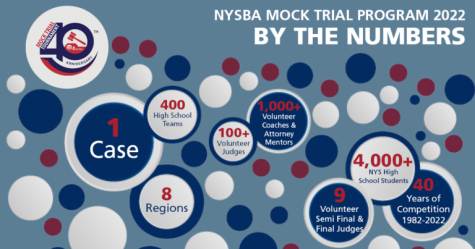Editorial: Net Neutrality Simplified
December 11, 2017
Lately, a lot of people have been throwing around the term “net neutrality”, but you may not even know what it means. Essentially, it describes the right for you to be charged the same for all data you use on the Internet, by your Internet Service Provider (ISP). Without net neutrality, you might have to pay extra just to access Google or have a limited amount of bandwidth every month.
Proponents of net neutrality argue that the heavy regulations of the Federal Communications Commission (FCC; the organization in charge of this) limit competition, innovation, and a free market, ideals propagated by many conservatives. True laissez-faire capitalism would not involve such restricting laws. Additionally, they argue that the FCC would shut down blatant abuses of the law and that it’s quite rare for an ISP actually shutting down a website.
Those against net neutrality advocate for the rights of the civilian, not the corporation. They say that to limit Internet time or restrict access to certain areas of the Internet violates fundamental liberties espoused by our Constitution. To be charged to go to specific websites would be equitable with piracy, and nobody really wants to pay extra. One concern is that corporations like Verizon, Comcast, and TWC could form an oligopoly, shutting down websites they’re economically or politically opposed to.
There have been violations of net neutrality in the past. For a period of two years, AT&T cut a deal with Apple to slow other communications applications like Skype and Google Voice, supposedly to boost Apple’s service, FaceTime. They relented in 2009 after scrutiny from the FCC. In 2012, Verizon attempted to remove several apps which allowed users to circumvent its $20 fee for hotspots, and in 2005, Comcast was found to be blocking BitTorrent, a protocol for sharing large files. Previously, all these violations were illegal, but soon, they might not be.
So what’s the current controversy? We’ve always enjoyed net neutrality, based on an interpretation of Title II of the 1934 Communications Act. In 2015 that was officially set in stone. However, recently, the newly Republican-controlled FCC led by Chairman Ajit Pai started a proceeding last May to revoke net neutrality. The FCC will vote this December 14 on whether or not to revoke the rules in place. The loosening of restrictions will benefit the big companies and not the actual consumer.
If we lose net neutrality, you will lose the ability to get onto any website as quickly as you want, you may be charged extra for certain functions of the Internet, and the large corporations at play will be able to dominate the face of the Internet for years to come. It’s not too late; get out there, call your representative, and support net neutrality!











